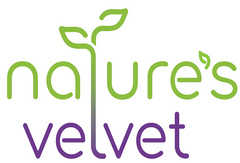Benefits of Biotin and Everything you need to know about it
Biotin is a water-soluble vitamin that’s a part of the vitamin B family and below is the detail study of what all you should know about “Biotin”
Table of Contents:
1: What is Biotin?
2: Benefits of Biotin
3:Sources of Biotin?
4: Precautions and side effects of Biotin
5: Summary
6: References
1:What is Biotin:
Biotin is also known as vitamin H, it is one of the B complex vitamins that help the body convert food into energy. The word biotin comes from the ancient Greek word “biotos,” which means “life” or “sustenance.
Vitamin B7 cannot be synthesized by human cells, but it is produced by bacteria in the body, and it is present in numerous foods. They are water-soluble
vitamins, so they are not stored in the body so daily intake is necessary.
Google Image
Biotin is an important component of enzymes in the body that break down certain substances like fats, carbohydrates, and others. Many systems benefit from biotin including the skin, nerves, digestive tract, metabolism, and cells.
Keep reading to find out how to add biotin to your diet, what to look for in a biotin supplement, possible side effects, and more.
2:Benefits of Biotin
a:Biotin for hair
If you love your hair then biotin is your best friend. Keratin is a basic protein that makes up your hair, skin, and nails. It’s clear that biotin improves your body’s keratin infrastructure. This helps in preventing hair loss and improving the growth of silky smooth hair
b:Biotin for nails
The vitamin may also help thicken nail cuticles and prevents breakage.
c:Biotin for skin
B vitamins play a key role in the function of the nervous system and do affect hormone function, which suggests why depleting biotin levels can, in turn, play a significant role in skin health.
d:For enhanced metabolism
Biotin assists in energy production. It supports a number of enzymes involved in the metabolism of carbs, fats, and protein.
e:For Multiple sclerosis
High biotin doses hold promise for treating multiple sclerosis, a serious disease that affects the central nervous system.
Apart from this biotin also has many other benefits are listed below
- If you're pregnant or breastfeeding, your biotin requirements may go up.
- Regulates blood sugar
- Lower your cholesterol levels
- Lower blood sugar levels in Diabetic patients
- Reduces the muscle pain caused due to dialysis
- Helps in the functioning of the immune system
- Lowering the risk of heart disease
- Prevent the DNA damage
3:Sources of BIOTIN
Biotin can be found in a number of foods, including:
- Egg yolk
- Almonds
- Organ meats (liver, kidney)
- nuts, like almonds, peanuts, pecans, and walnuts
- Nut butter
- Soybeans and other legumes
- whole grains and cereals
- cauliflower
- bananas
- Blue cheese and Camembert cheese
- Sweet potatoes
- Spinach
- mushrooms
Because food-processing techniques like cooking can render biotin ineffective, raw or less-processed versions of these foods contain more active biotin.
Biotin supplements
If you are afraid that you are not able to get enough biotin don't worry. You've got biotin supplement its to do the work.
Biotin can be purchased in powder to add to shakes or smoothies. It can also be obtained in a capsule form and in a liquid extract. If you look at the ingredients for commercial products promising stronger hair or better skin, many contain biotin.
Biotin intake
Anyone aged 10 or older should get between 30 and 100 mcg per day. Infants and children should get:
birth to 3 years: 10 to 20 micrograms (mcg)
ages 4 to 6 years: 25 mcg
ages 7 to 10 years: 30 mcg
Biotin is considered very safe. Even mega doses of up to 300 milligrams (mg) daily to treat multiple sclerosis have not led to adverse side effects.
Because it's a water-soluble vitamin, excess amounts are excreted in the urine.
4:Precautions and Side effects of Biotin
Biotin is usually safe, even in larger than recommended doses. You can still experience an allergic reaction to inactive ingredients in any supplement, including biotin.
Even with interactions, there are no known interactions between biotin and herbal medicines or other supplements.
But people who are associated with following actions should consult a doctor before taking biotin
- On dialysis
- Smoke cigarettes
- Eat two or more raw egg whites daily
- Take medications for seizures
- Have been on a long-term course of antibiotics
Apart from that Biotin is a safe vitamin that is unlikely to cause side effects.
Biotin deficiency may causeThere is a long list of biotin deficiency that includes
- red rashes on the skin, especially the face
- dry or scaly skin
- dry eyes
- brittle hair
- hair loss
- fatigue
- insomnia or difficulty sleeping
- loss of appetite
- nausea
- depression
- burning or prickling sensation in the hands and feet
- muscle pain
- changes in the intestinal tract (frequent upset stomach)
- cracking in the corners of the mouth
- seizures
- difficulty walking
So we suggest you include as much as biotin you can in your diet.
5:Summary
While biotin is necessary for normal body function, and supplements may help for nail growth, hair growth, pregnant women and some people with diabetes.
With that said, it’s always a good idea to eat a balanced, healthy diet and if that's not your scene then you can adequate amount of supplements to maintain n your optimal health.
Don't worry about where to find the product. We did the research for you and here is the link to nature velvet's best biotin supplement for you.
https://www.naturesvelvet.in/products/biotin-5-mg-60-softgels?_pos=1&_sid=7e5a35422&_ss=r
6:References
- Tags: Biotin hair nails vitamin b7
- Rakesh Gupta


Comments 0